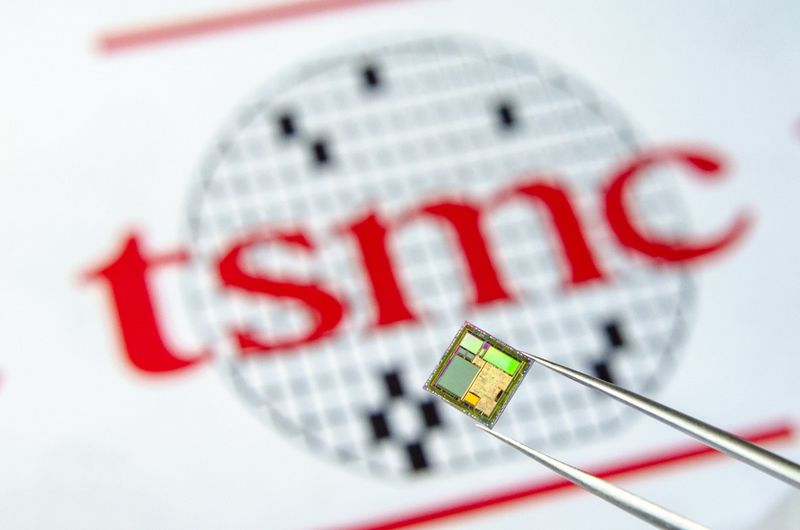Intel has acted as its own foundry for ages manufacturing its own chips without relying on a third-party. However, with significantly competition over the past few years and a stagnating business portfolio, Intel decided to change that and launch its IDM 2.0 strategy. With this change, Intel would not become much more open, not only acting as a traditional foundry that accepts contracts from other companies, but also start to outsource some of its products to other foundries, mainly TSMC.
A weird throuple
TSMC in many ways is Intel’s biggest indirect competitor as it’s the largest sub-contract semiconductor manufacturer in the world. It works in tandem with AMD, NVIDIA, and has a deep relation and history with Apple, who chose to ditch Intel in favor of its own silicone in 2020. That silicone was manufactured by TSMC. In fact, TSMC manufacturers all the chips inside Apple products including current iPhones, iPads, and Macs.
The upcoming iPhone 15 is also said to include Apple’s first-ever in-house 5G modems, manufactured by TSMC, ditching Qualcomm in the process. Apple acquired Intel’s modem division back in 2019 but has been unable to capitalize on this acquisition ever since, but this is looking to change soon as Apple inches closer to developing its own 5G modems to be used in 2023 iPhones.

So, as you can tell Intel, Apple and TSMC are all in a weird trifecta of competition and collaboration. This situation is about to get even weirder as Intel is now openly working with TSMC while still competing with Apple in the CPU department. Intel’s upcoming Arc Alchemist GPUs are manufactured using TSMC‘s 6nm node and 2023‘s 14th Gen Intel Meteor Lake CPUs are set to utilize TSMC‘s 3nm node as well.
The 3nm deal
Now, DigiTimes reports that Intel executives are ready to visit TSMC’s plant in Taiwan to finalize their 3nm deal with the semiconductor giant. Intel is meeting TSMC to discuss the demanded 3nm stock and hopes to avoid clashes with Apple. Just a day ago, it was reported that TSMC has begin test production of its 3nm node which is set to be used in Apple‘s M3 SoC and a bunch of future Apple products.
TSMC has also always given priority to Apple when it comes to manufacturing silicone and the same is the case with the N3 (3nm) node whose initial capacity is reserved entirely for Apple. That’s why Intel hopes to not clash with Apple’s production demands over the 3nm node. Right now we know that Meteor Lake CPUs’ GPU tile is set to utilize TSMC 3nm node but there could be other products coming down the line which can utilize the 3nm, including Arc desktop graphic cards, that we don’t know about yet.

DigiTimes’s article is hidden behind a paywall but several media outlets have access to the article and all the information in this article is sourced from them. MacRumors‘ coverage tell us that Intel executives will be “striving for more available 3nm process capacity at TSMC” and that “Intel is eyeing a closer tie with TSMC to avoid fighting with Apple for the available process capacity.” iPhoneHacks‘s coverage also mentions that Intel wants “finalize the scope of cooperation with TSMC”
Intel’s executives are set to visit in mid-December so keep an eye out for any news in the meantime and be sure to return when the news of the deal going through (or not) eventually breaks out. This is certainly an interesting development as Intel not only seems to understand that TSMC and Apple are close business partners but that Intel is the underdog here, and that they’ll need to make sure to avoid altercations with Apple as that could cost them their whole deal.
The post Intel Looking to Deepen Ties with TSMC in Hopes of Securing 3nm Supply appeared first on Appuals.com.


0 Commentaires